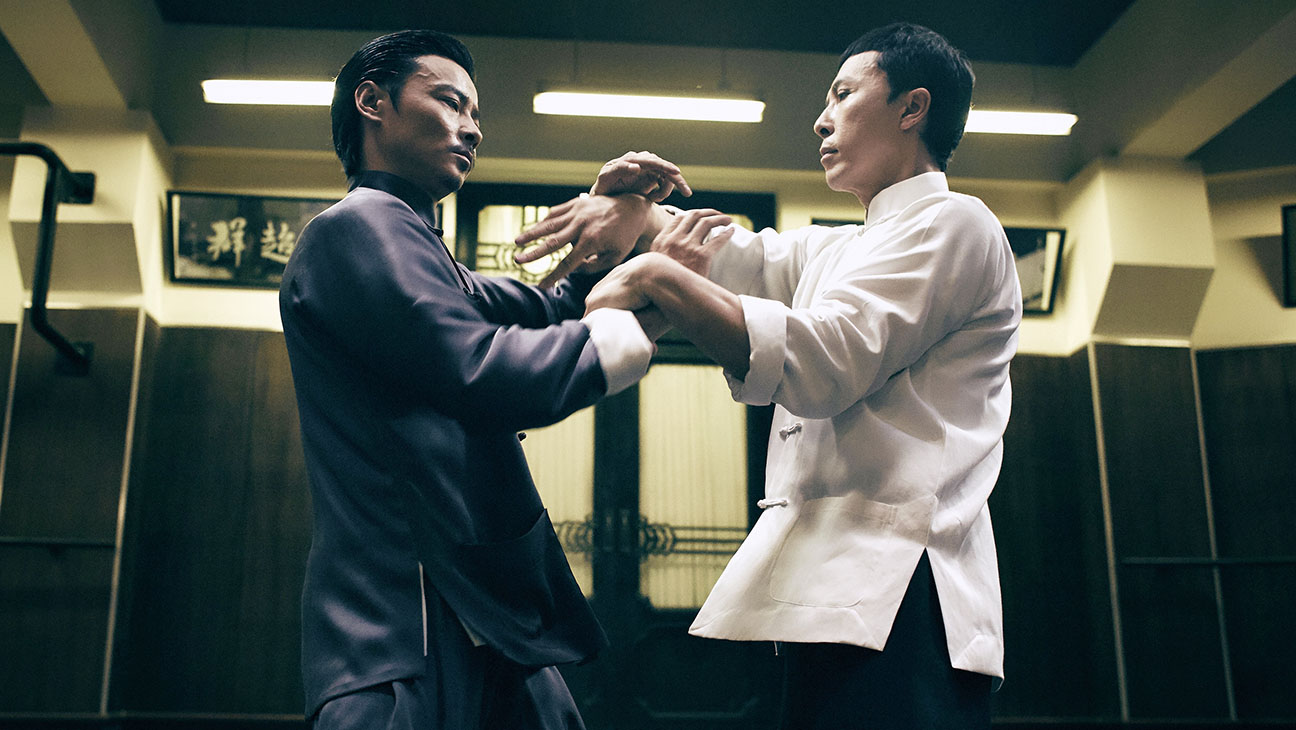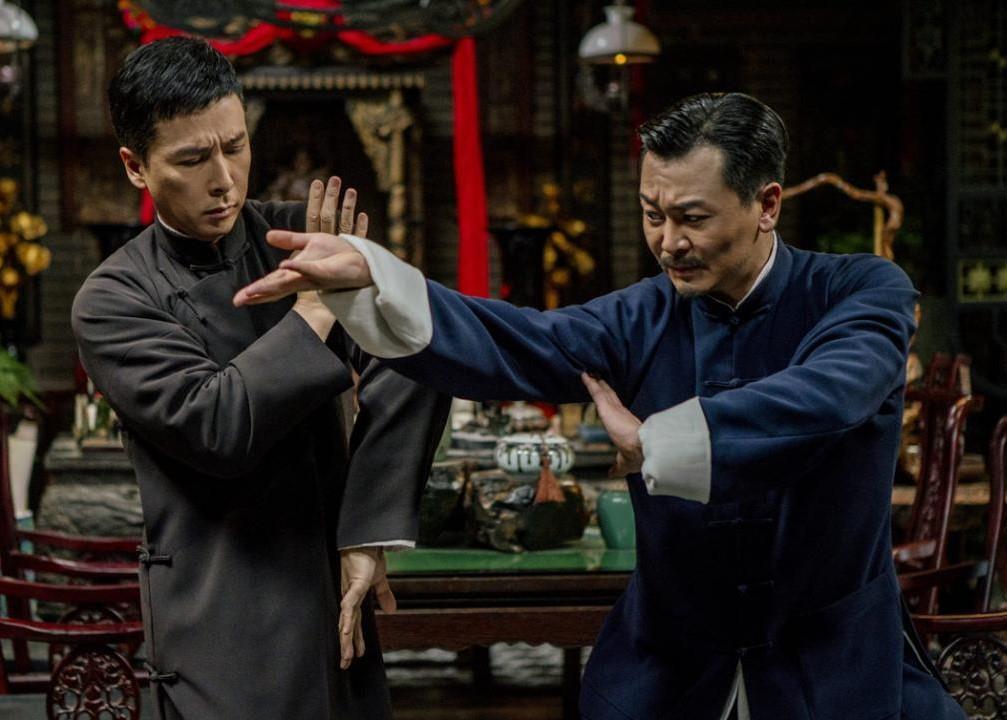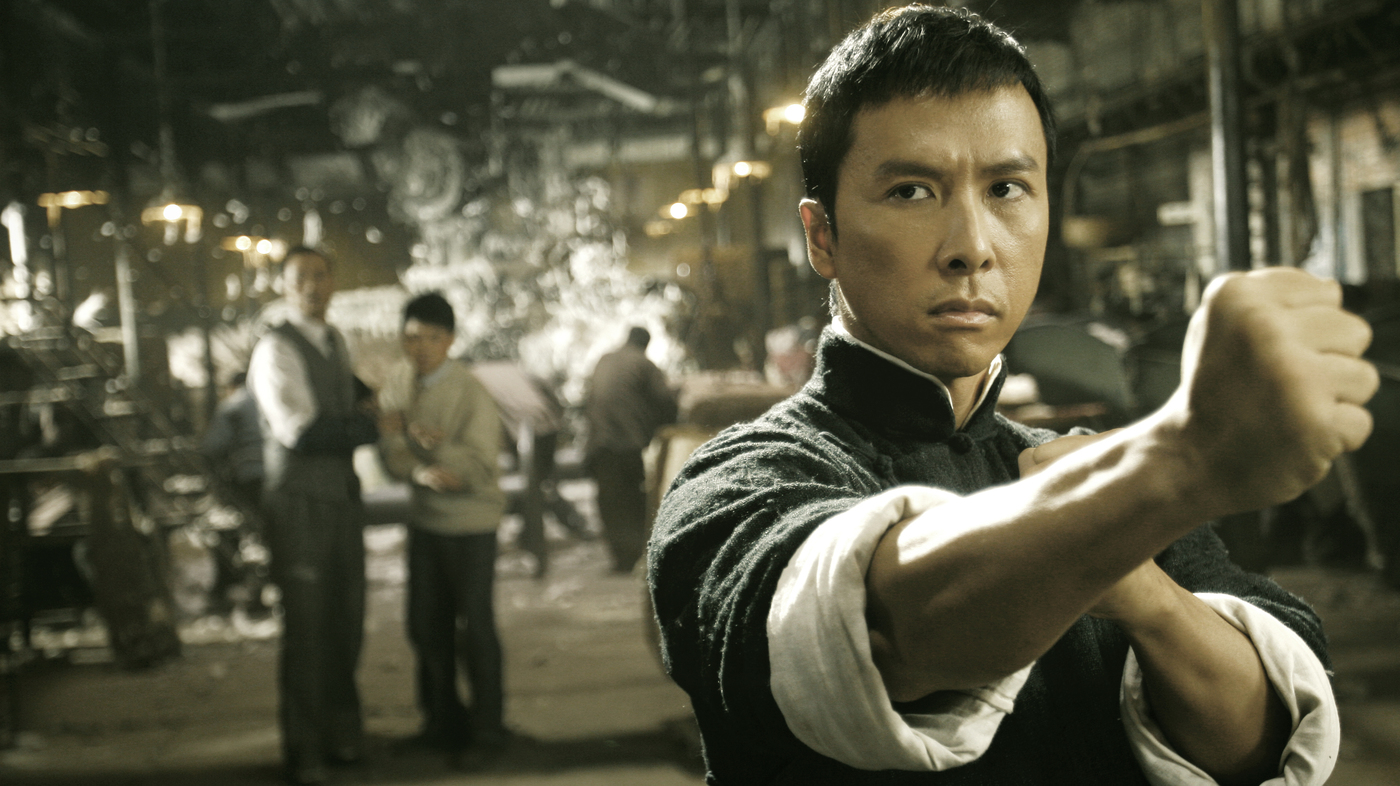‘Ip Man’ movies are Hong Kong biographical martial arts films that are hugely successful worldwide. The movies, 4 in total, follow the story of Wing Chun grandmaster Ip Man (also known as Yip Man). The series is directed by Wilson Yip and stars Donnie Yen as the martial arts grandmaster. All of the movies are critically acclaimed worldwide and generally well-received by the audiences as well.
The first movie ‘Ip Man,’ released in 2008, kicks off with the Japanese invading China in 1938, and a wealthy martial artist – Ip Man – is forced to leave his home and struggles to provide for his family when the city of Foshan is occupied by Imperial Japanese troops. The second film in the series, ‘Ip Man 2’ (2010), focuses on Ip Man’s migration to Hong Kong in 1949 and the hurdles he has to face while trying to propagate the skills and knowledge of the Chinese martial art of Wing Chun.

‘Ip Man 3’, released in 2015, centers around his tussle with a corrupt property dealer who is trying to forcefully (and illegally) acquire his son’s school. The film also shows Ip Man looking after his terminally ill wife while also trying to defend his title of Grandmaster of Wing Chun. The final installment – ‘Ip Man 4’ – was released in 2019 to global acclaim. It follows Ip Man and his son to the United States as they face racial discrimination while trying to search for a better life.
Yip Man, the True Inspiration Behind Ip Man Movies
‘Ip Man’ is not entirely a true story, but it is loosely based on Yip Man, the first grandmaster to teach Wing Chun and martial arts legend Bruce Lee’s teacher. When we say “loosely based,” we mean that the story in the movies is highly dramatized and is not entirely an accurate depiction of Ip Man’s actual life.
The Real Story of Ip Man
Ip Man was born as Ip Kai-man to wealthy parents in Foshan, Guangdong. He was the third of four children and received traditional Chinese education alongside his siblings. A young Ip Man learned Wing Chun from Chan Wah-shun (who was 57 at the time) for three years before he retired due to his advanced age.
At the age of 16, Ip Man moved to Hong Kong to pursue higher education at St. Stephen’s College, a secondary school for wealthy families and foreigners living in Hong Kong. There, with his classmate Lai’s encouragement, he challenged a guest at Lai’s home to a Kung Fu fight and got soundly beaten. Ip Man was depressed by this defeat until he learned that the man who had beaten him was the son of Leung Jan, who trained Ip’s master Chan Wah-shun. Ip proceeded to train with Leung Bik, until Leung’s death in 1911.

Ip Man returned to Foshan in 1917 when he was 24 years old and joined the police force there. He started teaching Wing Chun to his friends, family, and subordinates informally but did not open a martial arts school. Ip Man got married and had 4 children – two sons and two daughters. Both his sons, Ip Chun and Ip Ching, trained under him and went on to become great martial artists themselves.
In 1949, after the Chinese Communist Party won the Chinese Civil War, Ip Man, along with his wife and eldest daughter, moved to Hong Kong. Later, his wife and daughter had to go back to Foshan to retrieve their identity cards. However, due to the borders being closed between China and Hong Kong in 1951, Ip Man and his wife were separated for good, with the latter living out the rest of her years in Foshan before dying of cancer in 1960.
Around 1955, Ip Man also had a mistress from Shanghai, who his students referred to as “Shanghai Po”. He had an illegitimate son with her as well, Ip Siu-wah, who also trained as a martial artist. Ip Man died on 2 December 1972 in his unit at 149 Tung Choi Street in Hong Kong, after suffering from laryngeal cancer, only seven months before the death of Bruce Lee, his most famous student. He was buried at Wo Hop Shek, Hong Kong.
Apart from Bruce Lee, Ip Man taught a lot of other notable names in martial arts, most of who went on to become grandmasters themselves.
Read More: Will There be an Ip Man 5?


You must be logged in to post a comment.